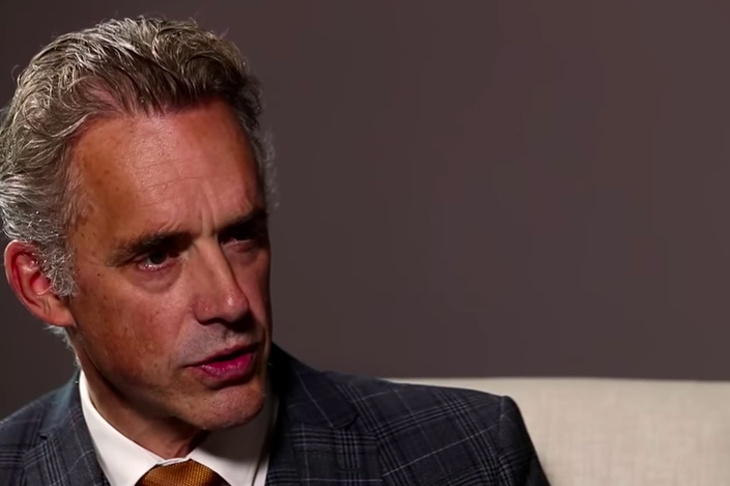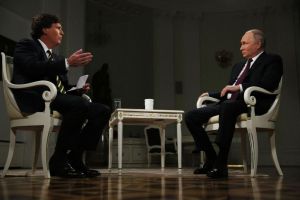The British edition of GQ is 30 years old and, to celebrate its birthday, it is conducting a ‘dissection of masculinity’. I can’t help feeling that’s a bit of a shame – if a men’s magazine won’t celebrate masculinity, who will? – but fear not. The male gender still has one unapologetic champion – step forward Canadian psychology professor Dr Jordan Peterson – and, as part of this promotional push, GQ sent Helen Lewis to interview him.
Those hoping for a re-run of Peterson’s famous encounter with Cathy Newman, the Channel 4 News presenter, will be disappointed. Peterson comes out on top, of course, but Lewis, the deputy editor of the New Statesman, is better prepared than Newman. She’s been to one of his talks, read 12 Rules For Life and – by the looks of things – has studied some of his previous jousting matches on YouTube.
Newman seemed completely dumbfounded by Peterson’s responses to her standard progressive line on issues like the gender pay gap, as if she’d never encountered an alternative point of view before – and, working at Channel 4, perhaps she hasn’t. Lewis, too, trots out the usual feminist boilerplate about our ‘tyrannical patriarchal society’ and so on, but at least she has anticipated some of Peterson’s responses, which means she’s never lost for words. There’s no ‘gotcha’ moment here. On the contrary, there are times when the two seem well-matched.
As you’d expect, much of the interview’s 102 minutes is taken up with Lewis trying to saddle Peterson with more toxic views than he actually holds – a familiar routine. Why has he been taken up by some members of the alt-right? Why did he pose with a group of men holding up a picture of Pepe the Frog? And why does he think we have anything to learn from the masculine dominance hierarchy of lobsters? Peterson is understandably bored by fending off these criticisms and, at times, his exasperation shows.
At other points, however, he seems more engaged – amused, even – by Lewis’s questions. The most entertaining section of the interview is when he accuses her of illustrating ‘the pathology of ideological possession’. What he means by this is that she’s become a mouthpiece for a particular ideology – she’s just unthinkingly regurgitating the left-wing dogma she’s been taught by postmodern neo-Marxist professors and intellectuals. He says it’s as if he’s talking to an automaton rather than a real person – a non-player character, to use the gaming term.
She disputes this, claiming that not all of her views comply with intersectional orthodoxy and challenges him to guess where she comes down on the issue of how easy it should be for trans women to self-identify. Like many feminists, she is at loggerheads with trans activists on this, and has been branded a TERF as a result, but that seems pretty threadbare evidence of her ability to think outside the social justice box. There’s a genuine schism in the identitarian church on this subject, and even though Lewis’s position is the less fashionable of the two, it’s hardly non-conformist. Peterson’s response to this unconvincing display of her credentials as a free-thinker is to say, ‘Congratulations.’
But for the most part it’s a good-humoured exchange. What starts off as an adversarial encounter becomes, by the end, more like a dialogue between a teacher and a promising student, with Peterson challenging Lewis to think for herself and try, at least, to be a bit more original. Let’s hope she doesn’t dismiss this advice as patriarchal condescension.


















